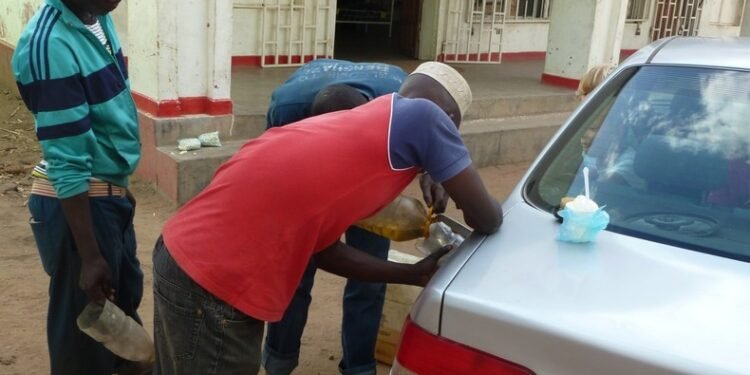According to the Chief Executive Officer of the Malawi Energy Regulatory Authority (MERA), Henry Kachaje, the unauthorized vendors are responsible for the fuel crisis ravaging the country.
Kachaje, during a session of Malawi’s parliamentary committee on Industry, Trade, and Tourism accused the black market operators of profiteering from the situation by selling fuel at inflated prices. He added that the vendors exacerbated the fuel shortage and caused unnecessary anxiety among the public.
The MERA boss added that the vendors purchased large quantities of fuel and resold it at higher prices, thereby contributing to the shortages which have continued despite the recent fuel supply that arrived in Malawi.
Malawi’s fuel crisis has been ongoing for about three weeks, causing widespread disruption and economic strain. This crisis has led to long queues at filling stations, and black-market prices have surged to K6,000 per liter, far above official rates.
This has resulted in increased costs for small businesses, particularly those reliant on transportation, and has led to reduced customer demand. The crisis has also caused inflationary pressures, with prices for essential goods surging.
The Executive Director of Consumer Association of Malawi (CAMA), John Kapito, a few days ago requested a fuel price hike amid economic woes.
John Kapito, the Executive Director of the Consumers Association of Malawi (CAMA), pushed for an adjustment in fuel prices to avoid fuel scarcity and its negative impacts on consumers and the economy. According to him, the delay in increasing fuel prices has resulted in significant losses for petroleum importers and that maintaining artificially low fuel prices would lead to shortages and other economic challenges.
While some Malawian officials have criticized Kapito’s stance, he argues that adjusting fuel prices is necessary to reflect the true cost of fuel on the global market and to avoid long-term economic consequences.
Kapito’s argument is that the government has accumulated a huge debt of over K1 trillion due to selling fuel at a loss
“Government now has over a trillion in debt because they continue to sell fuel at a loss. The key question they must answer is: how will they recover the trillion-kwacha loss they’ve incurred so far?” Kapito asked.
The Malawian government blames the fuel crisis on a shortage of foreign exchange, which has hindered efforts to import fuel from international suppliers. While officials have promised to address the issue, the timeframe for a solution remains unclear, leaving the public in uncertainty.









